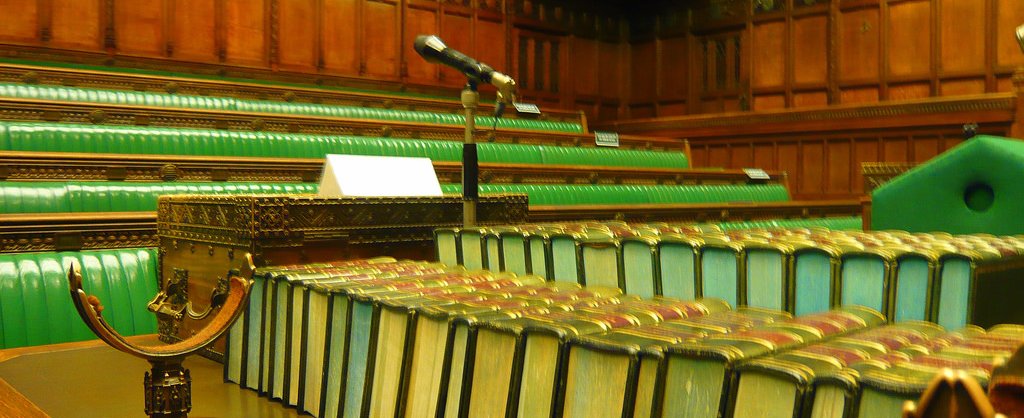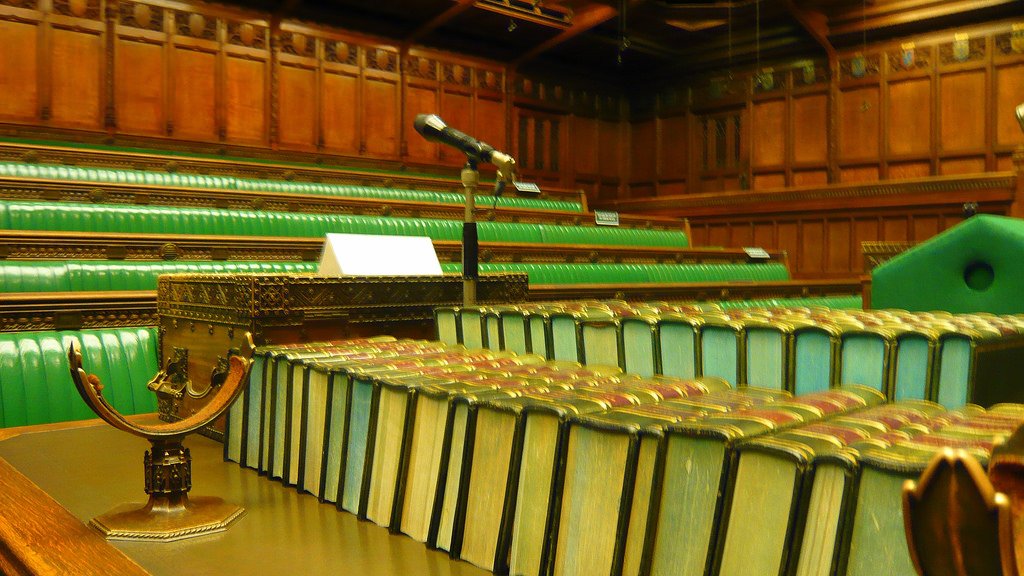
The UK election left no party with a clear majority to pass legislation and parties did not show voters that they understood the balance of positives and negatives that data and technology brings. Before the next election, the parties can show people their visions by looking for areas of consensus and working with local government to use data to improve places across the country, says Peter Wells

The results for the UK general election are now in. The UK is where our head office is located, and a global leader in data, so we took a keen interest in the election. Voters did not pick a clear winner. No party got a clear majority in the election. The UK now has a 'hung parliament'.
The Conservative Party – who had a majority after the last election – are forming a new government and holding discussions with the Democratic and Unionist Partyabout a 'confidence and supply' agreement (this explainer from the Institute for Government is useful). An agreement should allow the Conservatives to pass some legislation but it might also require them to change their manifesto to drop some policy ideas and bring in others.
Arrangements like this are unusual in the UK. They can break down if either party, or their MPs, rebel against the other. Another election is likely to happen if this occurs. That election might be conclusive, or it might result in another hung parliament.
This need to compromise runs the risk of derailing some of the big but important data items in the Conservative manifesto such as opening up geospatial data to help with challenges like housing, building data skills and literacy across society or using data to grow the UK's artificial intelligence sector.
Data and technology was used in the campaign but did not feature positively in the debate
Like many recent political events around the world data and technology were used during the campaign both to help political parties do traditional tasks, such as getting party members to knock on doors to talk with voters, and to do new things such as communicate on social media.
We wrote to the political parties to ask them to be open about their candidates and how they used personal data to help build trust in these campaigning techniques and the general use of data in society – unfortunately to no avail. During the campaign, existing organisations like Democracy Club and new organisations like Who Targets Me worked with volunteers – like myself – to fill the gaps left by the parties and social media platforms who failed to be open.
We would like to see the Electoral Commission, local authorities and political parties taking responsibility for supporting a strong data infrastructure that supports fair elections.
We were generally unimpressed with the manifestos of the major parties. While the parties used data to inform their campaigns, they failed to show in their manifestos how data and technology could help deliver on their visions for the future. This absence was all the more surprising given the UK's position as one of the world’s leaders on data and technology.
In the absence of positive visions, technology and data only featured in the campaigns as something to fear. There were fears of misuse of personal data and targeted advertisements by the political parties and fear of the use of technology by terrorists following the horrific attacks during the election campaign.
Political parties need to show us how data and technology play a part in their vision for the future
All of this is happening at an important time. The UK can't afford to wait.
The UK and European Union are negotiating the terms on which the UK will leave the EU, AKA the ‘Brexit’ deal. Data and technology are changing the world, creating both amazing opportunities with economic and productivity growth but also new challenges of ethics, equity and engagement.
UK businesses want to navigate Brexit and seize the opportunities of the data and technology revolutions while meeting their customer’s needs. Meanwhile, people want their needs to be met: whether better services from the public and private sectors, educational opportunities, new jobs, healthy friends and family, or affordable and enjoyable places to live.
Every year, more voters understand the importance of data and technology in meeting their needs – they use technology every day. Political parties have been quick to highlight technology’s dangers and risks, but not many have been able to convincingly show voters that they also understand the opportunities and benefits it can bring. Getting this balance right will take leadership, but whoever does so will be best-placed to win votes in elections and help shape the future, as our societies adapt to the information age.
There are areas of consensus around data
There are areas of consensus on data. The first steps on open data in the UK were made under the Labour Prime Minister Gordon Brown. The subsequent Conservative – LibDem coalition government picked up the work and it has been carried forward into the subsequent Conservative governments under David Cameron and, more recently, Theresa May.
The broad benefits of open data — providing transparency and accountability, increasing efficiency and productivity, and driving innovation and economic growth — are not party political. Even if this was not clear in the manifestos, there were hints. For example, the Conservative manifesto proposed creating the right system of governance to unlock the economic benefits of data. The Labour manifesto talked of the value of transparency and beneficial ownership registers. The importance of digital literacy and maintaining cross-border data flows and data protection regulations in the Brexit negotiations were also common to the wider manifestos.
These indicate areas where the parties could decide to work together and where even a hung parliament could legislate effectively. Other ideas – like opening up geospatial data to help with housing or establish an independent Data Ethics Commission, as proposed by the Conservatives – could also have cross-party appeal.
The parties can show us their different visions for the country
That said, the main political parties do have different visions for the country, and data and technology will play a role in that vision. Even though national politics may be confusing for a while longer, the parties have the opportunity to show us part of that vision while delivering some what businesses and people need through local politics.
The UK has devolved assemblies for Northern Ireland, Scotland and Wales and a growing number of city mayors in England. Control of these institutions is held by many parties. They have fewer powers than central government but discussing the limitations of their powers will also help people understand democracy. In the meantime, with the powers they have there is the opportunity to help support local communities and economic growth by supporting innovation, redesigning public services and opening up public and private sector data.
Many of our manifesto ideas could be applied locally, in fact some already are. Both we and the peer network of ODI Nodes – which includes organisations in all four UK nations – can help show the parties what's already working and where to go next.
Perhaps, in the next General Election, the national parties can point at their work to use data and technology to improve local governments, economies and services across the country.
That will need a different type of debate: one that has a stronger focus on a party's track-record of working across the country to make things better. This would help us all to be more informed in discussing our options as voters and electing our government. It would help to improve our democracy.
Peter Wells is Head of Policy at the ODI. Follow @Peterkwells on Twitter.
If you have ideas or experience in open data that you'd like to share, pitch us a blog or tweet us at @ODIHQ.